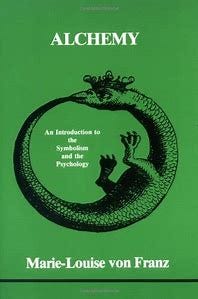In the last of the "Ten Ox-herding Pictures" of Zen, the old man goes to the market. He has a sweet smile, and has even forgotten his own enlightenment. There you have the completely collective man who goes to the market with his pupil and his beggar's bowl, and has even forgotten his Satori experience with the gods. That means he does not subjectively feel unique, but, the story adds, the cherry tree blossoms as he goes by and that is something you would not guess when an old fellow with a fat belly goes to the market with a rather insipid smile. Uniqueness springs from him as a creative act, but it is not intentionally in his mind. He does not feel unique, he is unique, although subjectively the same old man would say that he is a poor old man and what do you want of him? Such people have an extreme, natural humility, in spite of which their uniqueness manifests.
It is again the paradox of the ego and the Self. The ego must have the attitude of a human being among other human beings, and then the uniqueness, if it has been found within, will emanate involuntarily. It is just the opposite of being inflated with one's uniqueness, feeling so different from others and making those prince- and princesslike remarks such as: "I am so sensitive nobody understands me." That is just not it, and if people say that to me I always say I know there are a lot of people like that, and I don't say that out of wickedness; it is quite true, it is a very common quality to be so sensitive that nobody understands you. It is very widespread, especially among introverts, who feel unique but they are not. The enlightened one does not feel unique but very human and that is why you can say such people are very open to the world and very human with everybody, or paradoxically you can say they are infinitely unique and incomprehensible.
Entering the City with Bliss bestowing Hands, the last of the "Ten Ox-herding Pictures" of Zen Buddhism, represents the culmination of the process of individuation: "And now having moved through the stage of emptiness, and also having seen God in the world of nature, the individual can see God in the world of men. Enlightened mingling in the market place with `wine-bibbers and butchers' (publicans and sinners), he recognizes the `inner light' of `Buddha-Nature' in everyone. He doesn't need to hold himself aloof nor to be weighted down by a sense of duty or responsibility, nor to follow a set of patterns of other holy men, nor to imitate the past. He is so in harmony with life that he is content to be inconspicuous, to be an instrument, not a leader. He simply does what seems to him natural. But though in the market place he seems to be an ordinary man, something happens to the people among whom he mingles. They too become part of the harmony of the universe." Suzuki, Manual of Zen Buddhism.



